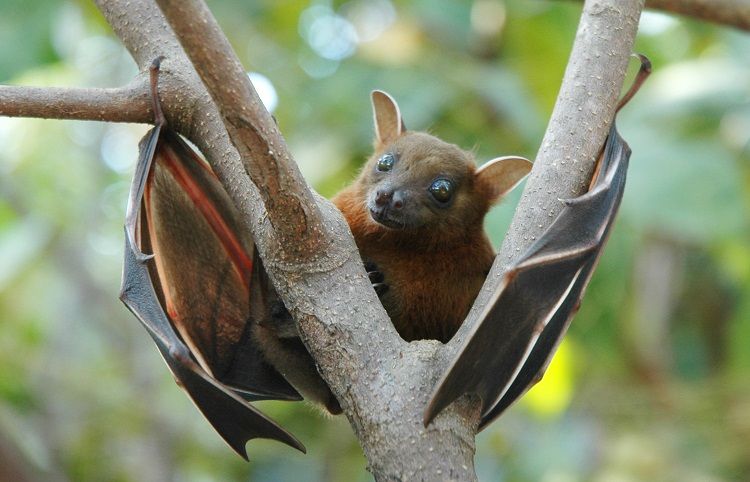An exotic pet refers to any animal kept as a pet that is not commonly seen or domesticated in typical households. These animals are often unique or rare species that are not native to a particular region or country. Exotic pets can include a wide range of animals, such as reptiles, birds, mammals, amphibians, and even insects.
One key aspect of exotic pets is that their ownership and care usually require more specialized knowledge and resources compared to traditional pets like dogs or cats. This is because exotic animals often have specific dietary, environmental, and healthcare needs that must be met to ensure their well-being. Owners of exotic pets may require permits, licenses, or specialized training to legally and responsibly keep these animals.
Some popular examples of exotic pets include:
- Reptiles: Such as snakes, lizards (e.g., geckos, iguanas), turtles, and tortoises.
- Birds: Like parrots, macaws, cockatoos, toucans, and various types of exotic songbirds.
- Mammals: Including exotic rodents (e.g., sugar gliders, hedgehogs), primates (e.g., marmosets, lemurs), small wildcats (e.g., servals, caracals), or even larger mammals like wallabies or kinkajous.
- Amphibians: Such as poison dart frogs, tree frogs, or salamanders.
- Invertebrates: Including a wide range of spiders, scorpions, tarantulas, or praying mantises.
It is important to note that the ownership of exotic pets can be quite controversial due to concerns about the impact on the animals' welfare, risks to public safety, and threats to ecosystems if these animals escape or are released into the wild. Laws and regulations regarding exotic pet ownership vary by country and even by region to address these concerns.
When considering an exotic pet, it is essential to thoroughly research the specific needs of the animal, legality of ownership in your area, and ensure you have the knowledge, commitment, and resources necessary to provide proper care throughout the animal's lifespan.
What Exotic Animals Are Legal in Florida?
The laws and regulations regarding exotic animals in Florida can vary depending on the specific county and municipality. However, some commonly allowed exotic animals in Florida include:
- Hedgehogs
- Sugar gliders
- Wallabies
- Capuchin monkeys (with a permit)
- Fennec foxes
- Serval cats (with a permit)
- Kinkajous
- Patagonian cavies
- Lemurs (with a permit)
- Tortoises (depending on the species)
It is important to note that even if an exotic animal is legal in Florida, it may require a permit or license to own or possess. Additionally, it is always recommended to research and consult with local wildlife authorities or a lawyer to ensure compliance with local regulations.
How to Get an Exotic Pet License in Florida?
To obtain an exotic pet license in Florida, you will need to follow certain steps and regulations. Here is a general guide on how to acquire an exotic pet license:
- Research the specific exotic pet laws: Florida has a comprehensive set of rules and regulations regarding the ownership of exotic pets. Make sure to familiarize yourself with these laws to understand which animals are considered exotic and what permits may be required.
- Determine if your desired pet requires a license: Some exotic animals may require a license, while others may be prohibited entirely. Contact the Florida Fish and Wildlife Conservation Commission (FWC) to check if the species you are interested in falls under the licensure requirement.
- Attend an educational course: In Florida, prospective exotic pet owners must complete a Personal Pet Ownership Course before acquiring a license. This course provides information on responsible pet ownership, animal welfare, and laws pertaining to exotic pets. The FWC offers both online and in-person courses.
- Acquire a USDA permit (if applicable): Some exotic pets, particularly those considered Class B animals, require a USDA permit in addition to a state permit. These animals include certain primates, large cats, bears, and other wildlife. Contact the USDA's Animal and Plant Health Inspection Service (APHIS) for more information on the specific requirements and application process.
- Submit the license application: Once you have completed the necessary courses and obtained any required permits, you can proceed to apply for an exotic pet license. Obtain the application form from the FWC's website or their local office.
- Pay the required fees: There are usually fees associated with obtaining an exotic pet license, which may vary depending on the species and the type of license requested. Ensure that you include the correct payment with your application.
- Wait for approval: After submitting your application, it may take some time for the FWC to review and process it. Be patient during this time and refrain from acquiring the exotic pet until you receive official confirmation of your license.
Note: It is essential to remember that even after obtaining a license, you must continue to follow all laws and regulations regarding the ownership and care of exotic pets, including permit renewals and facility inspections.
For specific and up-to-date information on obtaining an exotic pet license in Florida, it is advised to contact the Florida Fish and Wildlife Conservation Commission directly.
What Exotic Pets Are Legal in Florida Without a License?
In Florida, some exotic pets that are legal to own without a license include:
- Ball Pythons
- Corn Snakes
- Bearded Dragons
- Hedgehogs
- Tarantulas
- Emperor Scorpions
- Green Anoles
- African Clawed Frogs
- Fish (various species)
- Parakeets, Cockatiels, and certain other small bird species
However, it is important to note that laws can vary by county or city, so it's always a good idea to check with your local authorities to ensure that you are following all regulations regarding pet ownership. Additionally, certain animals may require a permit or license in the near future, so it's important to stay informed about any updates to the laws.
